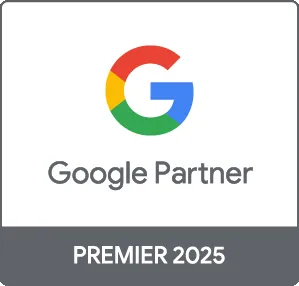In today's digital marketing landscape, businesses often find themselves choosing between Google Ads and Facebook Ads to promote their products and services. Both platforms offer unique advantages, but understanding their differences is key to leveraging them effectively. In this post, we will explore the strengths and weaknesses of Google Ads and Facebook Ads, helping you determine which option is best suited for your marketing goals.
Understanding Google Ads
Google Ads, formerly known as Google AdWords, is a pay-per-click (PPC) advertising service that allows businesses to display ads on Google's search engine results pages (SERPs) and across its display network. Key features include:
- Intent-based Advertising: Google Ads capitalizes on user intent, displaying ads to users actively searching for specific keywords related to your business.
- Broad Reach: With billions of searches daily, Google Ads can help you reach a vast audience around the world.
- Measurable Results: Google provides comprehensive analytics to track the performance of your ads in real-time.
Understanding Facebook Ads
Facebook Ads allow businesses to create targeted advertisements that appear on Facebook and Instagram. The platform’s strengths include:
- Interest-based Targeting: Facebook Ads enable you to reach potential customers based on their interests, behaviors, demographics, and more.
- Engaging Formats: Facebook offers diverse ad formats, including image, video, and carousel ads to engage users effectively.
- Social Proof: Social interactions (likes, shares) can enhance ad performance, as users are often influenced by content endorsed by their networks.
Comparing Google Ads and Facebook Ads
1. Targeting and Reach
Google Ads excels in capturing leads through intent-driven keywords, making it ideal for businesses looking to target users ready to make a purchase. Facebook Ads, on the other hand, focuses more on building awareness and attracting potential customers based on interests, making it effective for brand storytelling and engagement.
2. Cost and Budgeting
In terms of cost, Google Ads can be more expensive due to competitive bidding on keywords. Facebook Ads generally offer lower costs per click and can be more budget-friendly, making it a great option for small businesses or those new to online advertising.
3. Conversion Rates
While Google Ads tends to drive higher conversion rates from search intent, Facebook Ads can achieve remarkable conversions by nurturing leads through engaging content and remarketing strategies.
Which One Should You Choose?
Ultimately, the choice between Google Ads and Facebook Ads depends on your business objectives. Consider the following:
- If your goal is to capture immediate sales and reach users actively searching for your products, Google Ads is the better choice.
- If you aim to build brand awareness and connect with potential customers through targeted campaigns, Facebook Ads could be more effective.
Conclusion
Both Google Ads and Facebook Ads have distinct advantages that can complement each other. For a successful digital marketing strategy, consider integrating both platforms to achieve optimal results. At Prebo Digital, we specialize in creating tailored advertising campaigns that align with your business goals. Contact us today to learn how we can help you navigate the world of online advertising!





